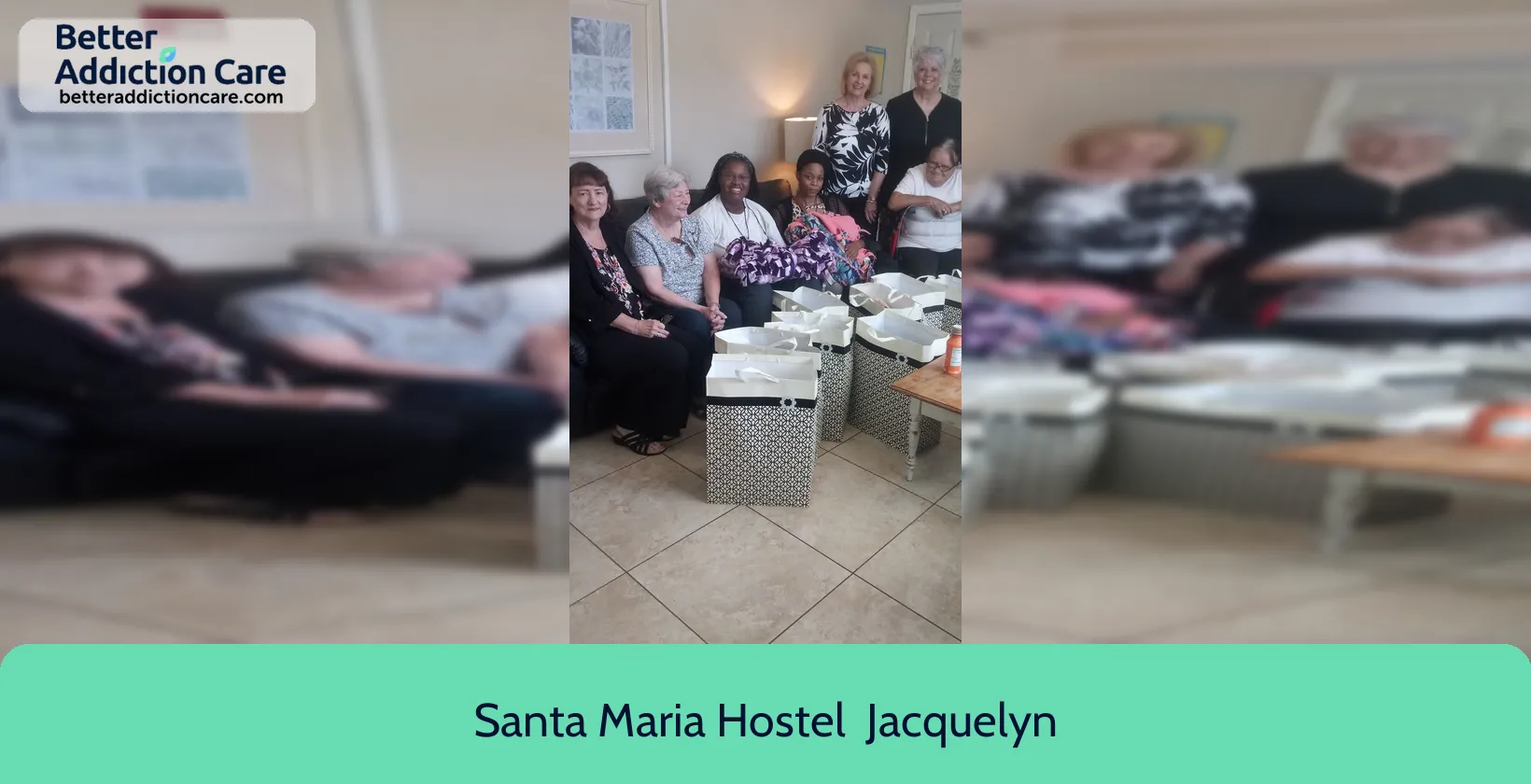Santa Maria Hostel - Jacquelyn
Overview
Santa Maria Hostel - Jacquelyn is a substance abuse treatment center for people seeking treatment near Harris County. As part of their treatment modalities for recovery, Santa Maria Hostel - Jacquelyn provides cognitive behavioral therapy, substance use disorder counseling, and trauma-related counseling during treatment. Santa Maria Hostel - Jacquelyn is located in Houston, Texas, accepting medicaid for treatment.
Santa Maria Hostel - Jacquelyn at a Glance
Payment Options
- Medicaid
- State-financed health insurance plan other than Medicaid
- Private health insurance
- Federal, or any government funding for substance use treatment programs
- Payment assistance (check with facility for details)
Assessments
- Screening for tobacco use
- Comprehensive mental health assessment
- Comprehensive substance use assessment
- Interim services for clients
- Outreach to persons in the community
Age Groups
- Young adults
- Adults
Ancillary Services
- Case management service
- Suicide prevention services
- Mental health services
- Transportation assistance
Highlights About Santa Maria Hostel - Jacquelyn
6.83/10
With an overall rating of 6.83/10, this facility has following balanced range of services. Alcohol Rehabilitation: 8.00/10, Drug Rehab and Detox: 6.00/10, Insurance and Payments: 6.00/10, Treatment Options: 7.33/10.-
Alcohol Rehabilitation 8.00
-
Treatment Options 7.33
-
Drug Rehab and Detox 6.00
-
Insurance and Payments 6.00
Accreditations
Commission on Accreditation of Rehabilitation Facilities (CARF):

CARF accreditation is a prestigious recognition granted to rehabilitation and human service organizations. It signifies that an organization meets high-quality standards, having undergone a rigorous evaluation process. CARF accreditation boosts an organization's credibility and ensures top-notch care for individuals with disabilities, injuries, or healthcare needs.
Treatment At Santa Maria Hostel - Jacquelyn
Treatment Conditions
- Alcoholism
- Mental health treatment
- Substance use treatment
- Co-occurring Disorders
Care Levels
- Hospital inpatient treatment
- Short-term residential
- Long-term residential
- Residential detoxification
- Aftercare
Treatment Modalities
- Cognitive behavioral therapy
- Substance use disorder counseling
- Trauma-related counseling
- Smoking/vaping/tobacco cessation counseling
- Group counseling
Ancillary Services
Languages
- Sign language services for the deaf and hard of hearing
- Spanish
Additional Services
- Pharmacotherapies administered during treatment
- Mentoring/peer support
- Breathalyzer or blood alcohol testing
Special Programs
- Clients with co-occurring mental and substance use disorders
- Veterans
- Criminal justice (other than DUI/DWI)/Forensic clients
- Pregnant/postpartum women
- Clients who have experienced trauma
Get Help Now
Common Questions About Santa Maria Hostel - Jacquelyn
Contact Information
Other Facilities in Houston

6.83

6.80

6.92

6.85

6.77

6.59

6.77

6.85
DISCLAIMER: The facility name, logo and brand are the property and registered trademarks of Northshore Treatment Center, and are being used for identification and informational purposes only. Use of these names, logos and brands shall not imply endorsement. BetterAddictionCare.com is not affiliated with or sponsored by Northshore Treatment Center.

